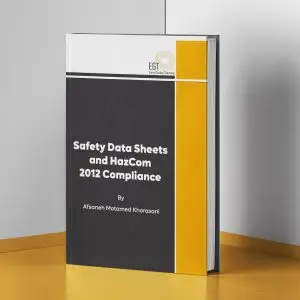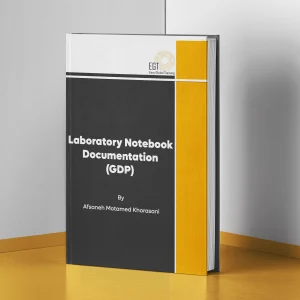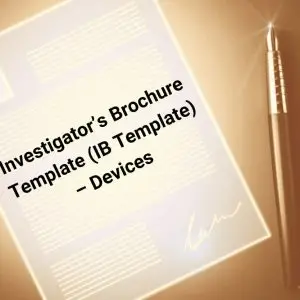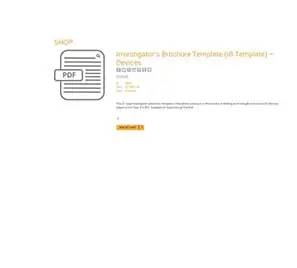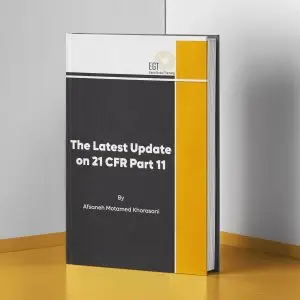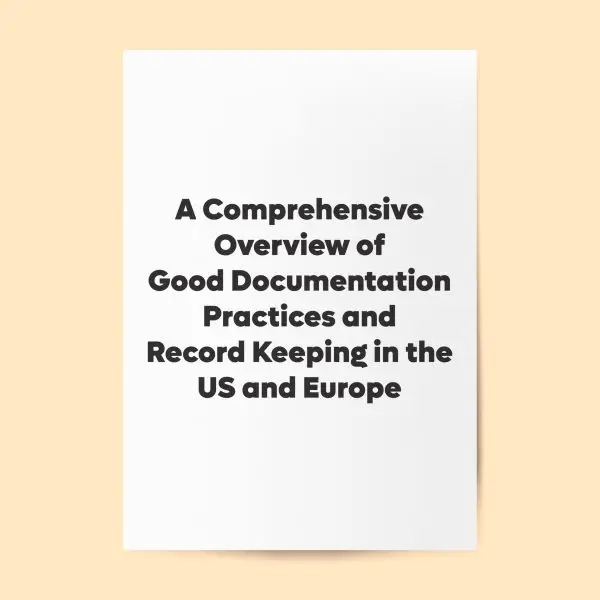
A Comprehensive Overview of Good Documentation Practices and Record Keeping in the US and Europe
Description
Speaker’s Bio:

Dr. Afsaneh Motamed Khorasani is a Medical and scientific Affairs expert and a Senior Scientist. Moreover, she has a strong background in biomedical science and clinical trial/research. Also, she has a tenured and diverse range of experience in medical affairs, basic and industrial clinical research and development, clinical trials, Medical and regulatory writing, and intellectual property. Furthermore, she is the Vice President of Medical Affairs at Easy Global Training, a US-based firm providing global regulatory, quality, and medical affairs training backed by consulting.
Formerly, she served as an independent consultant, director of medical affairs, senior medical sciences liaison, senior scientist, and senior medical analyst at Merck (MDS), Johnson & Johnson, United States Pharmacopeia Convention (USP), Amgen, Baxter International, Covidien (eV3), Radient Pharmaceuticals, AMDL Diagnostics, Microbix Biosystems, Neometrix Consulting, Mount Sinai Hospital, Princess Margaret Hospital, and Vancouver General Hospital.
She has more than 20 years of experience. Also, she has many National and international certificates in GLP, GMP, ICH-GCP, and global regulatory compliance for clinical trials. Furthermore, she is a member of several professional associations, including the American Association of Cancer Research (AACR), American Medical Writers Association (AMWA), Regulatory Affairs Professional Society (RAPS), American Society of Quality (ASQ), Project Management Institute (PMI), and Intellectual Property Institute of Canada (IPIC).
Her research has focused on high throughput approaches in cancer informatics. Moreover, her particular interest was in using comparative analysis for mining integrated oncology datasets that include protein-protein interaction and gene expression profiling. Furthermore, she has published and presented more than 50 papers, abstracts, and articles in highly regarded scientific journals, high-profile conferences, and scientific meetings.
Course Overview
Good documentation Practices (GDP) are an essential factor that the personnel must closely follow in any regulated environment for successful project completion. Generally speaking, this includes observations of unanticipated responses that must be accurately recorded and verified. So, this one-day On-in-class course covers the essentials of GDP, its definition, purpose, and importance. Also, it expands on general rules and principles of GDP (US & EU), GDP as applies to laboratory notebook (paper and electronic) documentation, GMP on non-clinical laboratory studies (21 CFR Part 58), and document and record keeping best practices specifically as it applies to drugs and devices (21 CFR Parts 212, 211, 312, and 812). Moreover, it further expands to discuss the USP General Chapter <1029> and Rules Governing Medicinal Products in the European Union (Vol. 4: Documentation). Finally, it discusses GDP enforcement by regulatory bodies in different countries with some examples of FDA citations.
Learning Highlights
- After completing this day’s In-Class session, you will gain advanced knowledge of GDP’s definition, purpose, and importance. Also, you will learn the General rules of GDP (US / EU), GDP as applied to laboratory notebook (paper and electronic) documentation, and GMP on non-clinical laboratory studies (21 CFR Part 58), document and record keeping best practices specifically as it applies to drugs and devices (21 CFR Parts 212, 211, 312, and 812). Moreover, you will learn about USP General Chapter <1029> and Rules Governing Medicinal Products in the European Union (Vol. 4: Documentation). Finally, discuss GDP enforcement by regulatory bodies in different countries with some examples of FDA citations.
- The outline of this one-day In-Class course includes:
- Definition, Purpose, and Importance
- General Rules and Principles of GDP
- Requirements of Records
- Copying records
- Document maintenance
- Recording the time and date
- Correction of errors
- Rounding rules
- Backdating
- Missing data
- Voiding / canceling records
- Recreating/rewriting records
- Deviations
- General Tips for Laboratory Notebook Documentation:
- Assignment of Lab notebook
- How to properly document in lab notebooks
- The proper way to include tables/graphs
- How to attach instrument printouts
- The best way of including metadata
- How to reference lab notebook
- How to store the completed lab notebooks
- Non-clinical laboratory studies (21 CFR Part 58)
- Documentation/record-keeping best practices as it applies to drugs (21 CFR Parts 212, 211, 312)
- Documentation/record-keeping best practices as it applies to devices (21 CFR Parts 812)
- US Pharmacopoeia General Chapter <1029>
- Rules Governing Medicinal Products in the European Union (Vol. 4: Documentation)
- GDP Enforcement plus Excerpts of FDA observations
- Summary
- References
Who Can Benefit From This Course
- Anybody who works in a regulated environment
- Manufacturing & Production Personnel / Managers
- Research and Development Personnel (R&D) / Managers
- Quality Assurance & Quality Control Personnel / Managers
- Laboratory Personnel / Managers
- Validation Specialists
- Clinical trial personnel
- Project Managers
Details
- ID: 938
- SKU: IC-0001-BP
- Type: In-Class Course
- Format: PDF Hand Outs
- Date of Last Update: Feb 23, 2017
- Duration: 1 Day
- Price: $799.00
Notes
For all the In-Class Courses, please contact us at info@easyglobaltraining.com for requests and registrations. The In-Class courses are held only in response to requests made or upon invitation to your site for On-Site Training for your company.
Also, browse our collaborator’s site (Neometrix Consulting Inc.).
And follow us on YouTube, Facebook, LinkedIn, Twitter, Instagram, Pinterest, and Tumblr, to get updates on what is new.

